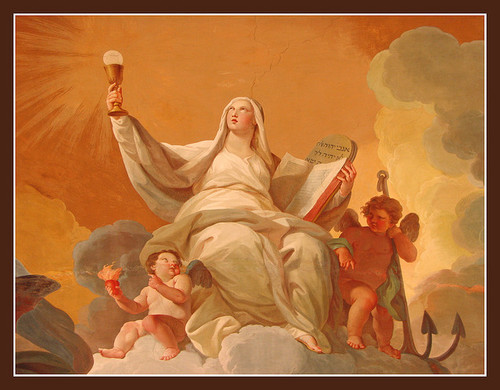
HOMILY for Wed in Week 3 of Lent
Deut 4:1. 5-9; Ps 147; Matt 5:17-19
The word law which comes from ‘lex’ in Latin is derived from 'ligare’, meaning 'to bind’. Hence, it is not surprising that laws are often regarded as constraining us. Laws seem to bind us and oblige us to do things we would not necessarily want to do otherwise. St Thomas thus notes that laws induce us to act or restrain us from acting.
However, the Law of God, which Moses receives and hands on to Israel, is binding in another way. Its purpose is to bind God to his people, and them to their God. More specifically, through the Law, God reveals his wisdom and goodness to Man, so that by observing the Law, Man can partake in God’s wisdom and goodness. The gift of the Law to Israel, then, is a sign of a privileged closeness and intimacy between God and his people. Hence, Moses says: “What great nation is there that has a god so near to it as the Lord our God is to us” (Deut 4:7). As such, the observance of the Law is a mark of belonging and being so near to the good and wise God. Through the living out of the Law, the people of Israel are being bound to God, united to his goodness and wisdom and life.
But this binding of God to Man and of Man to God reaches its perfection in the person of Jesus Christ. As we recalled in yesterday’s great feast, the eternal Word, God himself, took human flesh in the womb of Mary. Thus, in the person of Jesus Christ the Law is fulfilled. For in him God and Man are inseparably bound together; in him is God’s goodness, wisdom, and life. But it is not enough, of course, for Jesus alone to fulfill the Law and thus be united to God. God’s desire, in coming so near to humanity, is for all peoples and not just the Jewish nation to be united to God, too. So, Mankind is no longer to be bound to God by the Law of Moses but by Jesus Christ. Through the Incarnation, God has bound himself to Man so that we, Mankind, can come near to God, and be united to him. And we do this by co-operating with the grace of Christ given to us so that we keep Jesus’ Law, the law of love. In this way we are bound more closely to God. As Jesus says: “If a man loves me, he will keep my word, and my Father will love him, and we will come to him and make our home with him” (Jn 14:23).
The Eucharist, of course, is the sacrament which signifies and strengthens this loving union with God. Hence we find that the text of Deuteronomy 4:7, which referred to the Law, was often used by the Church to refer to the Eucharist. “What great nation is there that has a god so near to it as the Lord our God is to us, whenever we call upon him?”, whenever we call upon him in the Mass. For here is the sacramental presence of Christ who is the Law-made-flesh, as it were; here, God is bound to Man and Man to God in a holy communion. Thus, the Mass brings the Law to fulfillment in our lives. And this great sacrament will remain and not pass away “until all is accomplished” (Mt 5:18), that is, until we have been made holy by its grace, and are lovingly bound to God in the kingdom of heaven.
qcq liked this
philsebas liked this
lawrenceop posted this